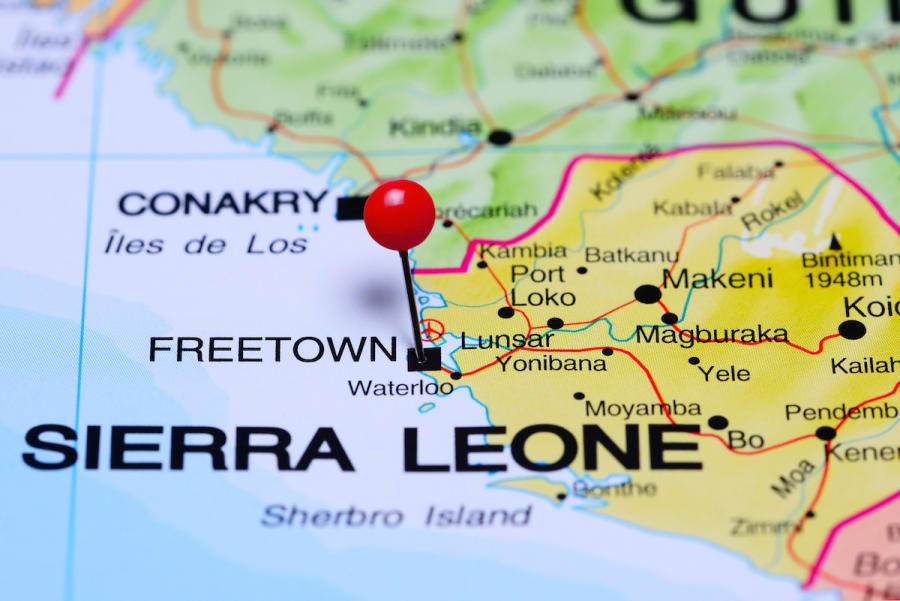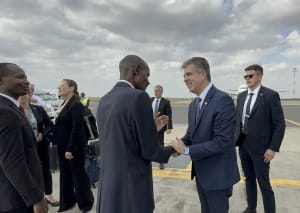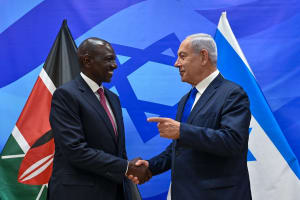Sierra Leone promises to open embassy in Jerusalem, will be 6th country to do so
Sierra Leone president calls Israeli foreign minister to discuss the move, hails warm relations between countries

The president of Sierra Leone, Julius Maada Bio, spoke with Israeli Foreign Minister Eli Cohen on Thursday night and promised to open his nation's embassy in the Jewish state's capital city, Jerusalem.
Sierra Leone became an independent nation in 1961 and has maintained relations with Israel ever since.
In the phone call, Bio referred to the “warm relations” between the two countries and told Cohen that, in light of those ties, Sierra Leone would be willing to establish its embassy in Jerusalem, “the capital of the State of Israel.”
His Excellency President Julius Maada Bio had a progressive telephone conversation with @elicoh1, the Foreign Minister of the State of #Israel, today, August 24, 2023.
— Presidency | Sierra Leone 🇸🇱 (@Presidency_SL) August 24, 2023
They discussed the warm relations between both countries that dates back to 1961 when #SierraLeone gained… pic.twitter.com/cJuzcISbvK
The West African nation does not yet have an embassy in Israel, nor does Israel maintain an embassy in Freetown, the capital of Sierra Leone.
If Sierra Leone does establish an embassy in Jerusalem, it would be the sixth country to do so, following in the steps of the United States, Guatemala, Honduras, Kosovo and Paraguay.
Earlier this year, Cohen met with incoming Paraguayan President Santiago Peña, who promised to return his country’s embassy from Tel Aviv to Jerusalem.
Cohen promised Peña that Israel would reopen its embassy in Asunción, following its closure five years ago.
Paraguay first moved its embassy to Jerusalem in 2018, under President Horacio Cartes. It was located next to the Guatemalan embassy.
However, the embassy was later moved back to Tel Aviv under President Abdo Benítez, who claimed that “Paraguay wants to contribute to increasing regional diplomatic efforts to achieve a fair and lasting peace in the Middle East.”
Prime Minister Benjamin Netanyahu then ordered the recall of the Israeli ambassador and the closing of the embassy in Asunción.
Israel has been trying to strengthen its relations with African countries, as it has sought to increase its global diplomatic efforts and reverse the break in relations following the Yom Kippur War.
Following the Abraham Accords, Israel has renewed ties with many African nations, often based on Israeli aid with medicine, technology, and water engineering projects.
The Jewish state was recently granted observer status in the African Union, though that has provoked some opposition from African countries with strong Arab ties.

The All Israel News Staff is a team of journalists in Israel.
You might also like to read this:
















